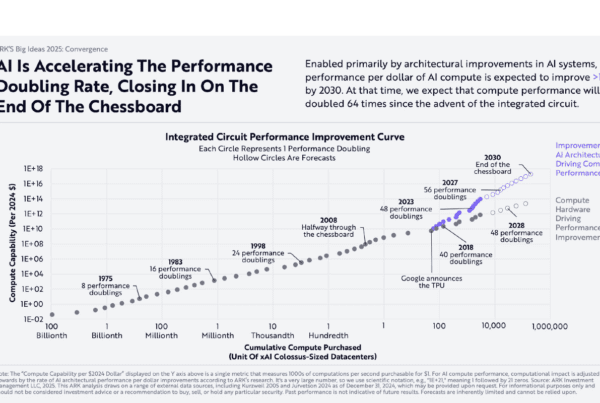For the past few years, we’ve heard the same criticism from institutional investors: Venture capital firms are too fast with their deployment of capital, often at the expense of diligence or the investment process. Though TFX is on the VC side of this equation, I have to say I agree.
The industry has always relied on a cycle of fundraising, deploying, and fundraising again, with fund harvesting and returns taking longer to build across fundraises. However, the current process has rapidly accelerated, with many funds making investments and raising new funds every two to three years (and even shorter cycles for certain VCs). This “spray and pray” approach doesn’t bode well for recent vintages as many companies that did not deserve funding received it—and they probably won’t be able to raise it again, particularly with a recession looming.
In addition, as VCs look for quick investments, they adopt a herd mentality, funding the same sectors and following the same trends. Case in point: Software and technology account for the lion’s share of VC investment in the US with over 50% of all capital invested in 2022 (per Pitchbook), while more complex hardware startups, which typically lend themselves to defense applications, represent a mere 3%.
With velocity and volume as the benchmark, the VC industry often ends up sidestepping startups that are solving harder, more complex problems; think of founders working on cybersecurity, infrastructure, healthcare, and quantum solutions. These overlooked opportunities and the increased risk this model generates should have us all questioning whether the current market trends need a reset.
Too fast, too furious?
Undoubtedly, the VC industry is designed to make big bets—and take big risks. That’s how the industry helped foster some of the modern era’s most significant technologies and tech companies. But traditional VC was predicated on the idea of milestone-driven investing and progress. Investors and founders celebrated company performance and ultimately exits; the funding was the start line, and the journey took many years, which required patient and supportive capital.
The current industry, however, is prioritizing deployment speed over diligence and deal quality, and investors are feeling the consequences. As an extreme example, the New York Times recently called out the spate of fraud accusations and convictions among startup founders in its article, The End of Faking It In Silicon Valley. Though the article focuses on founders playing fast and loose with the truth, it also notes how investors piled on, hoping to be part of the next big thing, while not digging deeper into potential trouble areas.
Fraud is the worst-case scenario and frankly, probably less common. Still, institutional investors we encounter are calling for a reset on their VC investments—a slowdown as they wait to see what happens with the money at work instead of re-upping without evidence of success.
Hardware feels the pain
Dr. Jason Rathje, the newly appointed Director of Strategic Capital at the Department of Defense, recently said, “More capital has been invested in e-commerce than quantum, advanced materials, and other critical security areas combined.” Rathje was speaking at the MIT National Security Conference last month.
This month a new hardware startup-focused venture studio called Conduit Venture Labs launched in Seattle. Its founders estimate that only 1% of the approximately 720 venture studios worldwide focus on hardware. While investing in hardware startups is certainly a different capital journey than just software, we as an investment community need to be able to do both well.
Investment fads from crypto to NFTs also capture investor attention as funds flock to the next big thing (often without fully understanding the market or whether the startups/founders have the domain expertise to succeed). If speed is your north star as an investor, then you are susceptible to following such fads. This can lead to executing poor diligence, ignoring valuation concerns, and racing to raise your next fund regardless of results or the havoc caused by flooding startups with capital they shouldn’t raise. Patience and discipline are needed to back founders doing truly hard work and tackling real-world problems.
Important sectors suffer
Meanwhile, there’s less funding focused on startups developing technology that may advance our national security. For example, private investment in space technology dipped to a two-year low in the first quarter of 2023, even as the NASA and US Space Force budgets are increasing to fuel innovation in space. But that doesn’t mean that our adversaries have stopped their march forward in important arenas, including quantum computing, materials science, infrastructure, and space.
U.S. adversaries, for instance, continue to invest in startups developing complex quantum computing solutions with the hope that they’ll win that race. For example, China is currently outspending the U.S. in quantum by a factor of three. The era of successful and affordable quantum computing may revolutionize all that we know today with the cloud, mobile devices, healthcare, etc. “They (quantum computers) are a new type of computer that can tackle problems that digital computers can never solve, even with an infinite amount of time,” states Dr. Michio Kaku in his book “Quantum Supremacy.” What’s more, a scarcity of funding for non-software startups makes them more susceptible to foreign investors, who can use the investment as a way to access and export that technology.
A call for disciplined capital
We believe that the VC industry and its investors would benefit from a more disciplined investment approach. At TFX, we’ve maintained a steady deal tempo for the past 8 years, characterized by methodical diligence and commitment to our investment thesis.
We’re focused on opportunities in healthcare, cybersecurity, financial services, security and risk, and defense tech. They’re all crowded, complex sectors with long sales cycles. That means we must deeply understand each investment’s real opportunity and risk. We also need to be flexible, exploring solutions beyond enterprise software and supporting startups that bolster our national interest and digital infrastructure—not just following the crowd.




